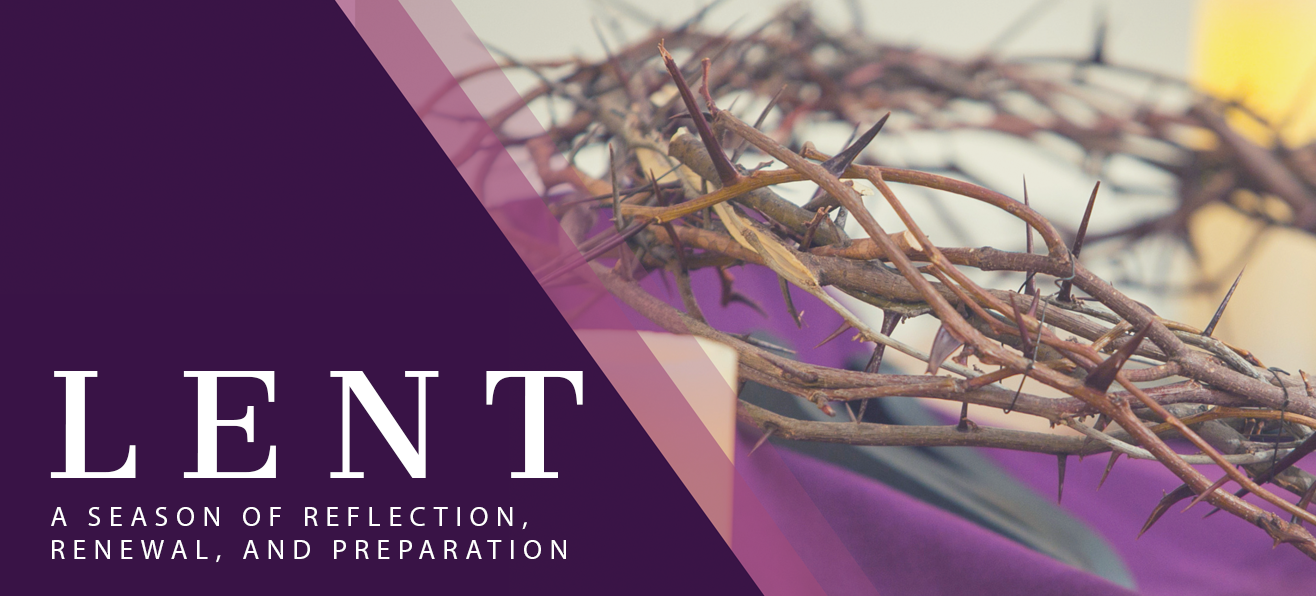“ENOUGH ALREADY!”
For those of us steeped in the traditions of Lent, beginning each year on Ash Wednesday, and historically associated with acts of “giving up” we may this year, want to cry, “enough already”! The past year has been, for all peoples, a time of struggle, fear, and loss. We have seen the tragic loss of thousands upon thousands of lives. Some of us will have experienced such loss personally. We have not even been able to accompany loved ones in illness and dying or to participate in the healing rituals of grieving. Many have lost homes, hard-earned businesses, jobs, and dreams and we have lost much of the close intimacy of our relationships because of necessary social isolation. “So please don’t ask me to give up chocolate too!” and that is true. This year has been a year of great sacrifice for so many and although sacrifice or “giving up”, if done for the right reasons and offered to God, is an act of love it is by no means the heart of the meaning of Lent.
“An invitation to deepen our relationship with God”
Rather, Lent is the season of relationship. The traditional practices of Lent - prayer, fasting, and almsgiving hold meaning and relevance if and only if understood as an invitation to us to deepen our relationship with God and to be in right relationship with ourselves, with one another, and with all of creation. This integrated understanding of relationship is what is meant by the term “integral ecology”. All is connected. In this season, and perhaps especially in the troubled context and fragmented world in which we find ourselves, this Lent offers us a fresh opportunity to heal broken relationships, to deepen our love and care, and widen our horizons of connection. It is more than a simple “giving up”. The ancient Lenten practices are first and foremost a call to a deeper relationship and they are more than relevant for this new day.
So, how might we more fully “live Lent” this year? Many, who attend church on Ash Wednesday and receive the mark of the ashes on their foreheads may recall much debate some years ago because of a growing discomfort with the words used during the imposition of the ashes: “Remember that you are dust and to dust you will return”. Somehow, these words smacked of guilt and a lack of appropriate self-esteem. We replaced them with “repent and believe in the Gospel” – for many a more comfortable and positive phrase. But perhaps a return to the original words speaks a truth we need to hear again as we seek to heal and to deepen relationships this Lent. For, as both science and faith now remind us, we are indeed a part of creation, “dust of dust” and created as such by God with love. To begin to heal our relationships we must first understand just how glorious this is. Our whole being is affirmed in this belonging in and with creation and in recognizing such reality, we can allow Lent to invite us into becoming ever more deeply who God created us to be: in relationship, defined by relationship, sustained in a relationship of love.
So what of the traditions and practicalities? In these difficult days, what is more healing than to go out into nature or if unable to do so to observe it from a window, in a plant, or flower in your home? Let this beauty embrace you, listen to it, see the reflection of God in it and give thanks, perhaps resolve one small way you can respond to the call to care for God’s earth. As Pope Francis says in his 2021 Lenten message, “Lent is precisely a season of hope when we turn back to God who patiently continues to care for his creation which we have so often mistreated.” From such a contemplative perspective, be led this Lent to the deepening of prayer, being present to the Divine Presence making time to deepen relationship with God whose love is unfailing even in the dark and stormy days of life. From this immersion in creation and in prayer allow yourself to know that you are loved and intrinsically connected to all others. Be gentle with yourself, an act often much harder than ascetic practices! Be gentle with others.
But what of Lenten fasting? Perhaps there are ways of fasting that are especially meaningful today. Not simply fasting from something I like or motivated by a slimmer figure but fasting from something for the good of the Earth, have some meatless days, or fast from indiscriminate energy use, for example. For the love and care of others, perhaps fast from judgments, gossip, or harsh words and instead call someone who is isolated and alone, affirm someone, reach out to mend a broken relationship, finds ways even during isolation to let someone know he or she is in your thoughts, your heart and your prayers. Then Lenten almsgiving follows and becomes more than giving money, although gifts of some kind may help those who are struggling financially just now, it can also be the gift of your patience at home, imagining ways to touch the lives of others, to gift your time, widen the reach of your generosity.
As we begin Lent this year go deeper, reach out, pray and give thanks. On Ash Wednesday make it a day of prayer, reflection, and commitment anew for hope in your heart and in the world. Indeed, this is “enough already”!
-Sister Mary Rowell, csj








